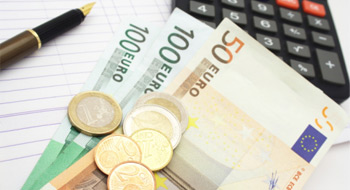

The annual inflation rate in the 19 countries that use the euro reached zero in October, which could push the European Central Bank to expand its stimulus program.
The rate rose from -0.1% the month before, according to the European Union statistics agency.
Read: Despite hope for a new bailout, Grexit threat remains
Falling energy prices were a major factor in the inflation rate remaining low, but weak price increases are also a sign of less than robust demand in the economy.
Looking ahead, fears of continued low inflation could lead the ECB to extend its stimulus program, in which it buys bonds from banks using newly printed money. Currently, such bond purchases are slated to run at least through September 2016, but the ECB has indicated it could decide to expand its 1.1 trillion euro (US$1.2 trillion) stimulus program, or deploy a different form of stimulus at its December meeting.
In theory, printing money should push up inflation, but price increases have been slow to respond in the Eurozone. So the annual rate remains well below the ECB’s goal of just under 2%. And, even core inflation, which excludes volatile energy prices, rose to only 1% in October, from 0.9% the month before.
Low inflation makes it harder for indebted companies and countries to reduce their burdens. It also complicates efforts by bailed-out members of the Eurozone, such as Greece, to make their economies more competitive with European trade partners.
Over the long term, low inflation can become ingrained and undermine wages, investment and growth.
Analyst Howard Archer of IHS Global Insight writes in a research note, “It looks like [it will be] a long and arduous slog before Eurozone consumer price inflation gets up near the ECB’s target rate […] Indeed it looks increasingly unlikely to happen before 2018.”
Read: Greece needs to tackle its pension problems
As a result, “The odds continue to favour [that] the ECB will deliver further stimulative measures at its December policy meeting.”
Eurostat says unemployment in the Eurozone fell to 10.8% in September, from 10.9% the month before, extending a gradual improvement in the currency bloc’s labour market.
